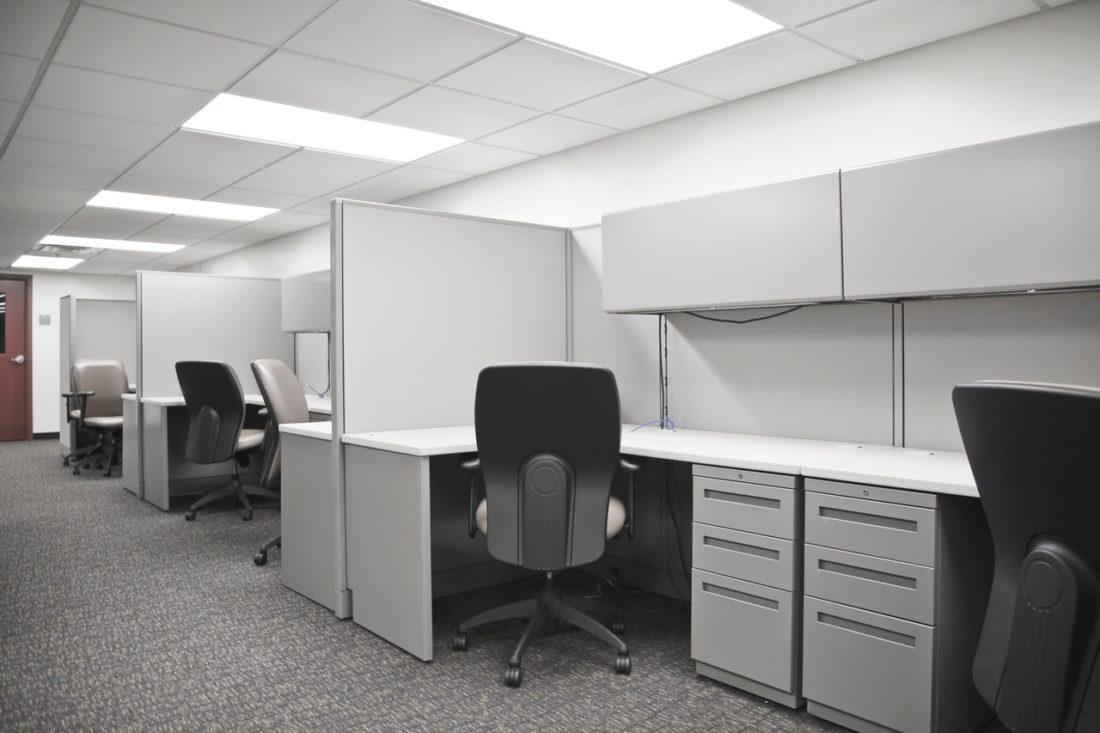COVID-19 may have disrupted how Buncombe County does business, but according to County Manager Avril Pinder, that disruption could lead county government in some creative directions. Pandemic-related changes in how staff members go about their duties, she suggested at a Jan. 26 special meeting of the Board of Commissioners, could lead to better service for the community.
Pinder and Rachel Nilson, an architect with Rochester, N.Y.-based CPL, walked through the potential changes as they presented the results of the county’s comprehensive facilities study. The study represents the first part of a nearly $836,000 plan, commissioned by the board in June, to help the county identify needed capital and space improvements.
“The first domino” of Buncombe’s rearrangement, according to Pinder, would be continuing the massive increase in staff telecommuting that started last year due to COVID-19 concerns. Of the county’s roughly 1,600 employees, 465 are currently working remotely, and 283 have said they would continue to do so indefinitely if allowed. Before the pandemic, only a few information technology and Health and Human Services Department workers telecommuted.
Nilson estimated that, if those employees were to stay remote, the county would need about 22,700 fewer square feet of office space, even accounting for shared “touchdown” areas that could be used for in-person meetings and collaboration. And with that reduced need, she continued, a cascade of consolidations could occur.
All community-facing HHS staff could be moved into the county’s building at 40 Coxe Ave., which would, in turn, create space at 35 Woodfin St. That building could then house most other county functions that involve the public, including the Planning Department, the Bureau of Identification and the Tax Department.
And the spaces vacated by those departments could, in turn, be repurposed or rebuilt. Nilson proposed, for example, that a substandard building at 52 Coxe currently housing HHS and the WNC Regional Air Quality Agency be torn down and replaced with a new structure for Election Services.
Although the board did not formally commit to the continued telecommuting that would allow these changes to happen, members expressed openness to the conversation. Board Chair Brownie Newman noted that widespread remote work, while potentially beneficial, was also “a new societal phenomenon” that the county should not rush into lightly.
But Commissioner Al Whitesides pointed out that the county’s adaptability may be key to securing a quality workforce. “It’s coming whether we want it or not. And I think the companies and the organizations who adjust first will get the best employees,” he said. “I hear it from a lot of younger employees now: They’re looking at that when they’re looking at employment.”
A survey published Jan. 12 by consulting firm PwC backs up Whitesides’ assertion. When asked about their post-pandemic preferences, 55% of employees said they’d like to work remotely at least three days per week. Only 8% said they would not want to telecommute at all, while 29% said they would do so five days per week.




Before you comment
The comments section is here to provide a platform for civil dialogue on the issues we face together as a local community. Xpress is committed to offering this platform for all voices, but when the tone of the discussion gets nasty or strays off topic, we believe many people choose not to participate. Xpress editors are determined to moderate comments to ensure a constructive interchange is maintained. All comments judged not to be in keeping with the spirit of civil discourse will be removed and repeat violators will be banned. See here for our terms of service. Thank you for being part of this effort to promote respectful discussion.